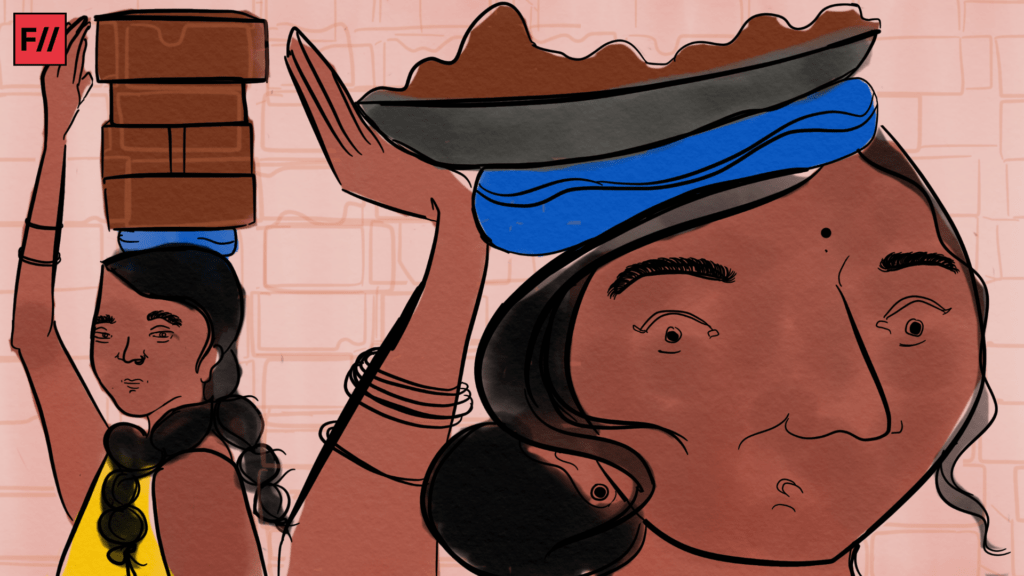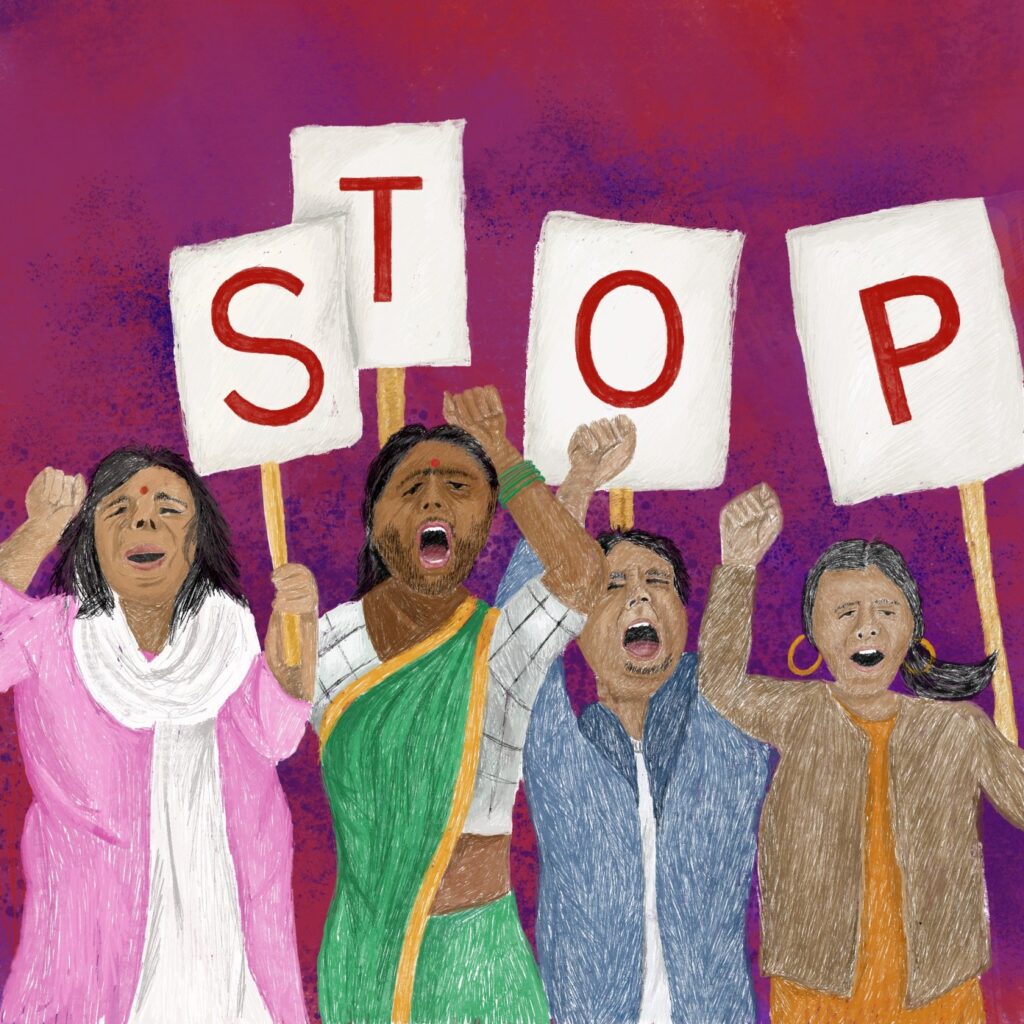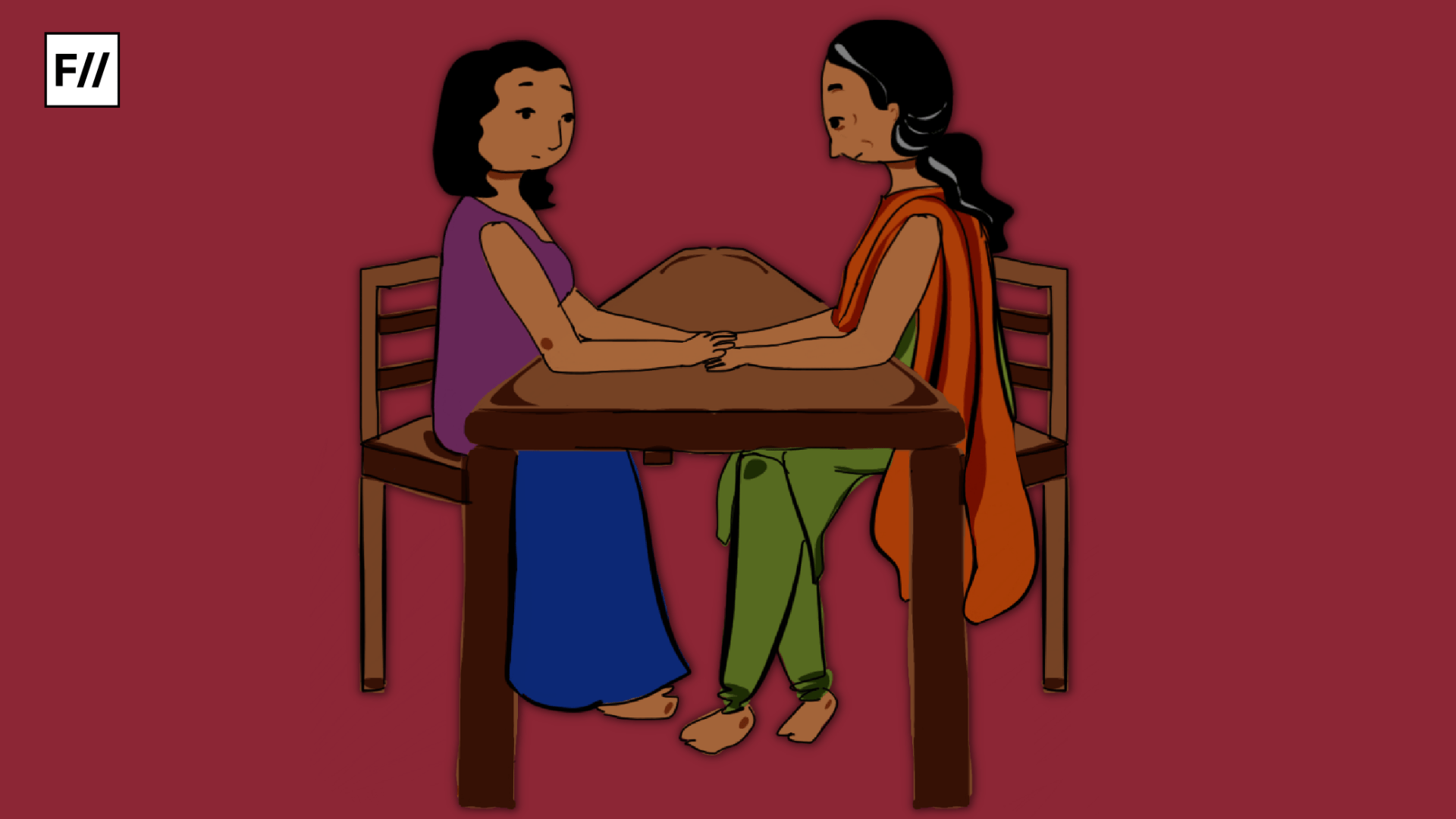Trigger Warning: This article discusses gender inequality and mental health and it mentions depression, sexual abuse and gender-based violence.
In 2019, Instagram artist, @juliehang.art posted a slice of her ongoing journey to improve herself as a better person, one of her biggest challenges being unlearning the idea that she was ‘not like other girls’. The post illustrates how she would rather play video games than go shopping, wear sneakers and t-shirts rather than high heels and short skirts (a subtle but appreciated nod to Taylor Swift) and hang out by herself. Yet, she finds out that other girls are, well, not that different from her but unique in their own special way.
Much too often, internalised sexism is the biggest downfall that women face, mostly because it is something which they bring upon themselves. While it is easy to identify more overt forms of sexism from the opposite sex, internalised sexism is harder to notice and consequently harder to fix. It is the sexist attitude that women have inculcated from larger society that they direct towards themselves and other women, leading to them craving the validation of their male counterparts by repeating the same traumatic actions which they experience. This leads to a constant presence of oppression due to the internalisation of the attitude of the oppressor.
Internalisation is, ‘the action of accepting or absorbing an idea, opinion, belief, etc. so that it becomes part of your character’. While growing up, experiencing puberty, entering the workspace and even at home, women are constantly subjected to sexist comments and mentalities from family members, friends, peers and colleagues. Hence it is easy for them to pick up on the very same attitudes unknowingly and bring this harm upon themselves. While men have a higher tendency to externalise issues by being more outwardly aggressive and angry, it has been observed that women tend to internalise most of their issues, bringing very serious effects on their mental health like withdrawal, loneliness and depression.
Gender is a critical factor that determines one’s mental health and mental illnesses. As was mentioned earlier and stated by Prakriti Poddar, Global Head, Mental Health & Wellbeing, “For many women, the greatest source of stress comes from within. We put pressure on ourselves to be and do more, resulting in a cycle of overgiving without filling our own cups. But we’re not helping anyone if we end up burned out and depleted. The world is a better place when we prioritise quality sleep, tension-relieving movement, and guilt-free breaks.”
It is indeed a difficult task to fight an issue which women barely have any control over yet it is only through unlearning and rebuilding better female relationships and solidarities that we can overcome the perpetration of sexism through our own actions.

Mental health is a term which has gained much recognition and weightage in the past few years. The emphasis on the issue has led to the beginnings of a more sensitive society with mental health leave, therapy and counselling very slowly becoming a less stigmatised concept. While it is a step forward in the right direction, perhaps it is necessary to take a step back and evaluate the determinants that affect mental health in order to address the issue at the root causes.
Gender is a critical factor that determines one’s mental health and mental illnesses. As was mentioned earlier and stated by Prakriti Poddar, Global Head, Mental Health & Wellbeing, “For many women, the greatest source of stress comes from within. We put pressure on ourselves to be and do more, resulting in a cycle of overgiving without filling our own cups. But we’re not helping anyone if we end up burned out and depleted. The world is a better place when we prioritise quality sleep, tension-relieving movement, and guilt-free breaks.“ Due to gender roles, social values and norms, economic status and cultural and religious systems created around them, women face a boatload of issues that are vastly different from men.
As shown in research and studies, an estimated 80% of people affected by violent conflicts, civil wars, disasters and displacement are women and children. The lifetime prevalence of the rate of violence against women ranges from 16% to 50% while every 1 in 5 women suffers from rape or attempted rape. The most common mental health issues faced by the elderly are depression and dementia, a majority affected being women.
As shown in research and studies, an estimated 80% of people affected by violent conflicts, civil wars, disasters and displacement are women and children. The lifetime prevalence of the rate of violence against women ranges from 16% to 50% while every 1 in 5 women suffers from rape or attempted rape. The most common mental health issues faced by the elderly are depression and dementia, a majority affected being women.
Therefore, mental health data reveals that the usual patterns of mental issues and psychological distress of women are different to those of men. In general, depressive symptoms, anxiety and unspecified psychological distress are 2-3 times more common among women whereas addictions, substance abuse and personality disorders are common among men. This is evidently in relation to the tendency of both sexes to internalise and externalise their issues respectively.
Women are nearly twice as likely to experience depression than men, at any age. While this can be accounted for by hormonal changes during puberty, pregnancy, and postpartum depression; depression cannot be solely caused by it.
Unequal power and status often lead to poverty and unstable futures which can cause feelings of negativity, low self-esteem and lack of control over life. While there is a slow but steady increase of women in the workforce, the majority of women still handle their home responsibilities simultaneously dealing with single parenthood, working multiple jobs, caring for children as well as dependent family members. This overload of work can lead to high-stress levels and burnout.
Various other biological factors, personal life circumstances and even inherited traits are associated with a higher risk of depression. Unequal power and status often lead to poverty and unstable futures which can cause feelings of negativity, low self-esteem and lack of control over life. While there is a slow but steady increase of women in the workforce, the majority of women still handle their home responsibilities simultaneously dealing with single parenthood, working multiple jobs, caring for children as well as dependent family members. This overload of work can lead to high-stress levels and burnout.

There are also a significant number of women who undergo emotional, physical or sexual abuse both as children and adults who are more likely to experience depressive tendencies in their lives as compared to those who weren’t abused.
Psychosocial stressors are also a dominant part of the discourse around women’s mental health. To be the ultimate 21st-century woman, one is supposed to perfectly balance a successful career while being a good, nurturing wife, mother or daughter, consequently being attacked from all fronts by family, work and society at large.
The pressure from families usually surrounds marriage, children, and caring for one’s parents. While men too experience pressure at the workplace, they are rarely criticised for additional aspects such as their image, which most women try their best to cultivate. These pressures have affected females the most. In rural and semi-urban areas, common issues that surround women are low income, desire for male progeny, tense relations with in-laws and parents, pregnancy-related health issues and mostly a lack of support or help which are all risk factors for postpartum depression. This is especially evident and the most high risk among socially and economically disadvantaged women.
Women also face a struggle with the expectation of what constitutes a mental illness. Care providers are often dismissive of women’s symptoms and they are taken less seriously than men. Since women are labelled as ‘primary caregivers’, it is common for them to care and compensate for their husbands when mentally ill, however, when they are ill themselves, they are expected to still take on the responsibilities of caregiving. But who is going to care for her?
Being a woman, moreover being a woman with mental health issues, carries too much baggage for society to deal with. She may often be socially ostracised by her own husband, family and community. The culture and society of most of South-East Asia, India included, is fraught with dowry practices, a firm patriarchal system, less educational as well as employment opportunities for women and so women’s physical and mental health tends to suffer seeing as they are faced with stressors while also being ill-equipped to battle against them.
It is clear that when addressing the health of women, the broader social and economic circumstances must be taken into account. While gender inequality is highly disadvantageous not only for women but society as a whole, it is now visible that it is also harmful to women’s health. There are many aspects which need to be covered, but firstly the most fundamental need which seems to be common across all social issues is the education of girls.
With a decent education, women are more aware of their own rights and access to resources, or for that matter, their lack of these very amenities. This can give them the prerogative to fight for a change in a direction which is more beneficial for their all-around health. It must be acknowledged that there is much more than the reproductive and maternal health of women that needs to be covered in policies as these issues are deeply intertwined with the mental health of women as well.
With a decent education, women are more aware of their own rights and access to resources, or for that matter, their lack of these very amenities. This can give them the prerogative to fight for a change in a direction which is more beneficial for their all-around health. It must be acknowledged that there is much more than the reproductive and maternal health of women that needs to be covered in policies as these issues are deeply intertwined with the mental health of women as well.

The biggest battle that we as a society seem to constantly be fighting is for a change in the mindset of the larger population. By removing the gender disparities and improving the social status of women, half the battle could be solved. While policymaking and planning are in the hands of the higher-ups, this is in the hands of the newer generations to adopt a healthier, more inclusive mindset for a better future. Moreover, it is a battle for women to begin speaking up for themselves, speaking up for other women instead of internalising their issues and tearing each other down.






>…80% of people affected by violent conflicts, civil wars, disasters and displacement are women and children.
That is manipulation with figures without telling the entire story. During a war, like in Ukraine, women and children are told to leave the country while men are left to fight and die.